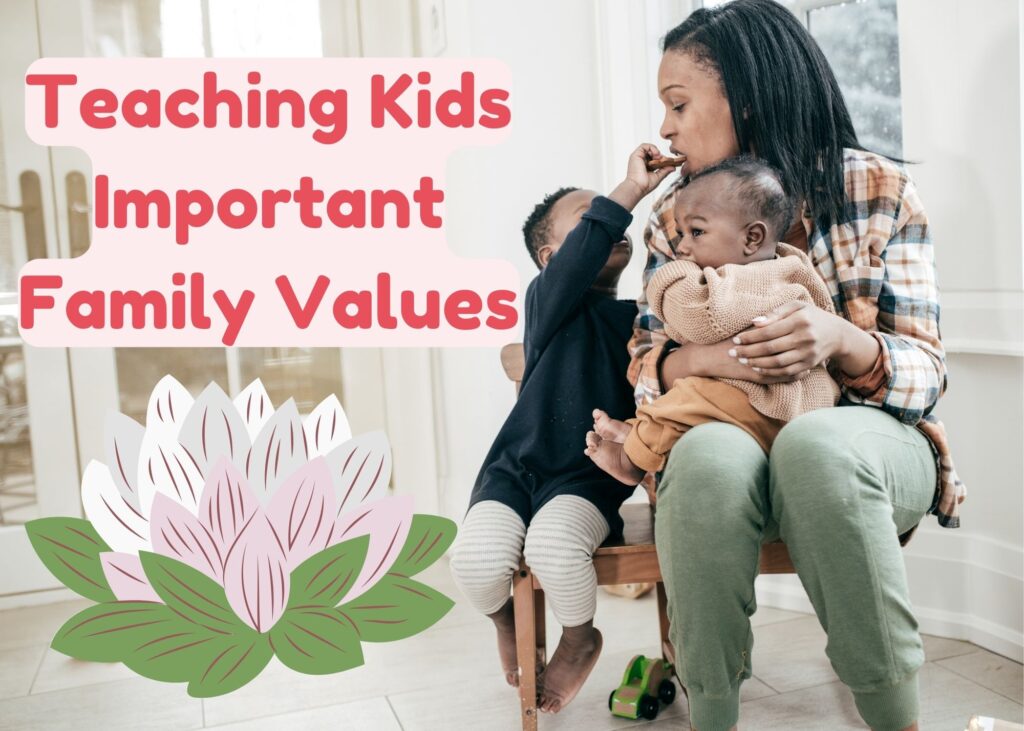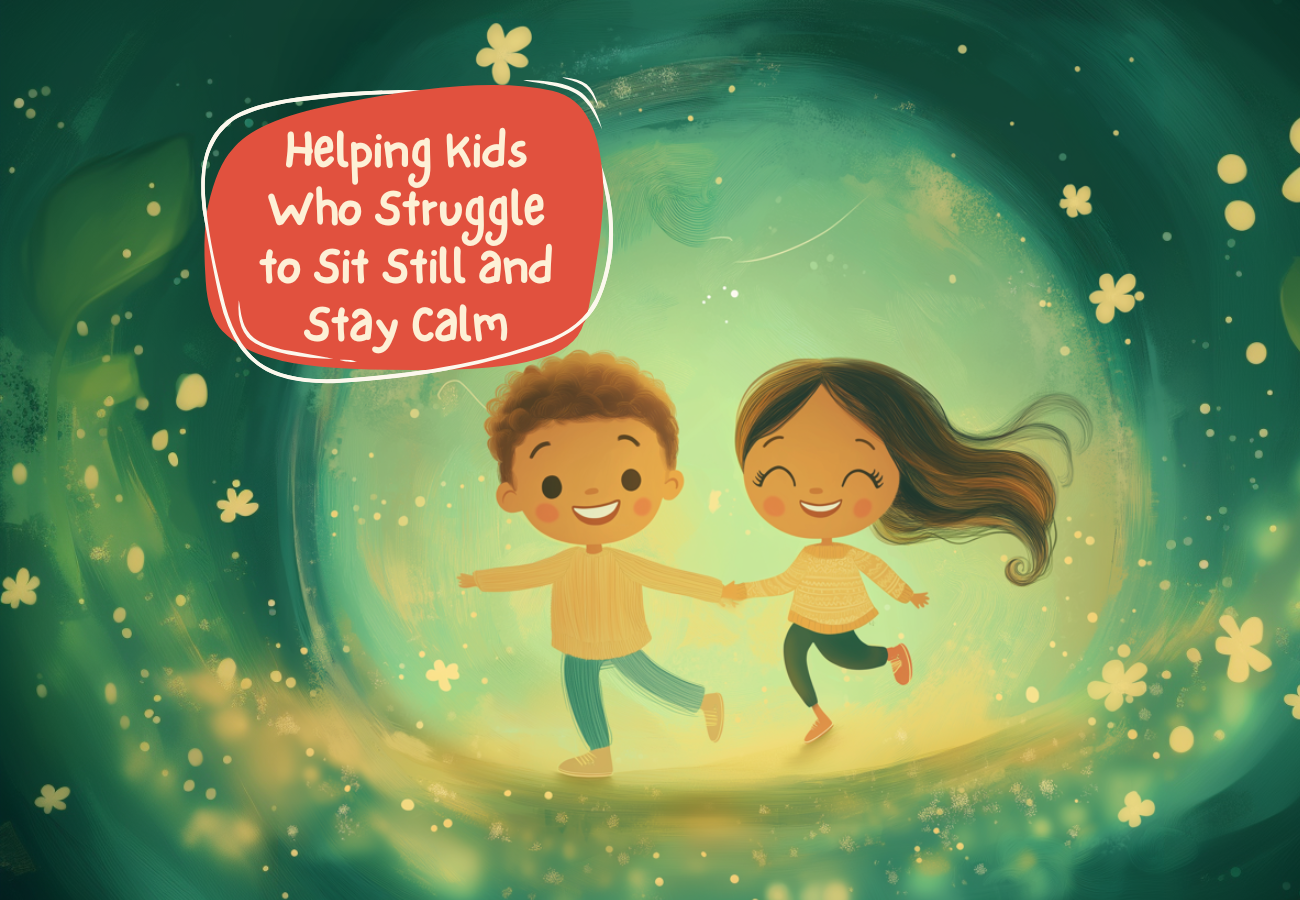Teaching Kids Important Family Values

We teach kids different values such as love, honesty, kindness, etc. But less attention is paid to raising a family member. And the first thing a good one needs is family values. Today we’ll talk more about it.
What Are Family Values?
It’s considered that a typical American family consists of no less than 2 children. But, according to Statista, that was true more than 50 years ago. In 2022 there were 1.94 children per family under the age of 18, compared to 2.33 in the 60s. And the number of child-free families is also increasing. Still, the number of families with kids remains the same.
The question of family values, fortunately, is still relevant nowadays. In general, they are similar to all the other values, apart from the fact, the family ones are focused on building strong relationships. Let’s look at them.
Responsibility
Good family values cannot do without this one. We`re responsible for one another. That means:
- being ready to help at any moment;
- sacrificing own interests for the sake of others;
- adjusting own behavior;
- listening to others` opinions, etc.
How to teach it to kids?
- Involve kids in helping other members of the family;
- Encourage him to make favors without any reason;
- Show on your own example how to take care of the closest ones, etc.
- Chore charts would also be a fun way to teach responsibility
Teamwork
The list of family values should also include cooperation. All the members of the family should stick to a win-win strategy. That means taking into account others’ opinions and trying to find the most optimal solution for a problem.
Children ought to be ready to give a hand whenever it’s needed. Plus, it`d be brilliant to teach them such a philosophy as “if you want to go quickly, go alone, but if you want to go far, go together”.
The best tool here is bounding games and activities. Plus, the whole family should share something in common. It can be a tradition, but all the members have to love it. Or, find a common hobby. You can go yachting or hiking. The more adventures it has, the better for your relationships.
Good Manners
A lot of people try to be polite everywhere but not at home. But our close ones are the first to deserve respect. Cultivate good manners at home and stick to them everywhere.
- Don`t forget to say “thank you”, ‘help yourself”, ‘please’, etc.
- Teach kids to reveal their feelings and say I love you to close ones;
- Let elder kids help their younger siblings;
- Let younger siblings respect their elders.
To make such good deeds a simple habit, introduce your kids to a kindness adventure calendar.
The family should become a place where good manners aren`t an obligatory behavior but a style of life. Don`t be too pushy not to discourage kids from it, but encourage them to be polite and sensible.

Something in Common
Psychologists claim the more events you undergo with a person, the more chances that you’ll become friends. The same is true about the family. Start collecting memories and moments. Even a broken bottle of water in a supermarket can become a funny memory if you treat it as a comical situation and not a big deal.
Live an active life and there`ll be events that bring you closer. Actually, the easiest way to stay connected with kids is to share their interests and travel with them a lot.
You can establish a funny tradition. The main condition is that it is entertaining and out-of-the-box. But parents should be ready for such adventures. If your thinking is stereotyped, try to expand your boundaries and accept new tendencies to be closer to your kids.
As an option, start a new project with your kids. It can be planting a garden or building a tree-house. You can adopt a dog, start training him and walking out together with kids. Choose something all of you like to cultivate values for kids in your family. Reading a book together can really help in bringing your family together.
Free Space
A family is a place where everyone can feel love and support. Yet, when having even the closest relationship we all need some time to be alone or chat with our friends.
If you keep your kids at home round the clock, they`ll never feel homesick. They may become irritated and aggressive. Let them spend some time outside of the family. That’s a nice feeling when you miss your family because without it you`ll never see how you love them.
A lot of adult kids who live apart have more warm relationships with their parents than those who live together. Let your kid visit summer camps, and take part in school trips. Don`t be afraid they will forget about you. It`s OK for them to be more excited about friends rather than family members. If you treat your little one with respect and show your love, he`ll never leave you aside from his life.
Empathy
A lot of small kids demand to play with them even if parents say they have a headache. Also, your little one may make noise and shout when his elder brother is revising for exams. That all means a lack of empathy.
Still, it’s difficult for a 4-year-old who`s swept into the entertaining game to stop it and shift to something else. It’s even impossible. But you still have to explain to your little one that other members have some issues and need his understanding.
To teach your little one empathy, you may involve him in problem-solving. Let he
- bring a glass of water to his brother;
- make the bed for him;
- help a mom who’s struggling with a headache to set the table;
- ask his parents how they are feeling;
- make a handmade present to cheer somebody up, etc.
If a kid sees how it’s difficult to fix a problem or how much effort it takes, he’ll learn empathy quickly.
Conclusion
Family values and beliefs can differ from family to family. However, since you have ones, they can become the very point that keeps all of you together. Your relationships cannot be well-rounded without good family values. The more in common you and your kids have, the better. Think about adding some new values to your everyday life.
More articles

Helping Kids Who Struggle to Sit Still and Stay Calm
Some children move through the world with nonstop energy that rarely seems to slow down. They bounce, fidget, tap their feet, or speak out when quiet is expected. These behaviors can feel overwhelming for parents, teachers, and caregivers trying to create calm. Is the child being defiant or simply overstimulated? Are they anxious, under-challenged, or […]

Teaching Kids to Celebrate Differences Through Books
Why Books Matter in Teaching Kids About Differences Teaching kids to celebrate differences through books is one of the most effective and natural ways to build a more inclusive future. Stories have long served as windows into other lives, cultures, and perspectives. When children read books that highlight diversity, inclusion, and empathy, they begin to […]

How Technology Can Empower Your Kids to Learn, Grow, and Thrive
Technology often gets a bad rap when it comes to its effects on children, including issues related to screen time, cyberbullying, and online distractions. While these concerns are valid, these misconceptions should not overshadow its incredible potential to enhance education, creativity and well-being for your child when used responsibly and mindfully. When used appropriately, technology […]



